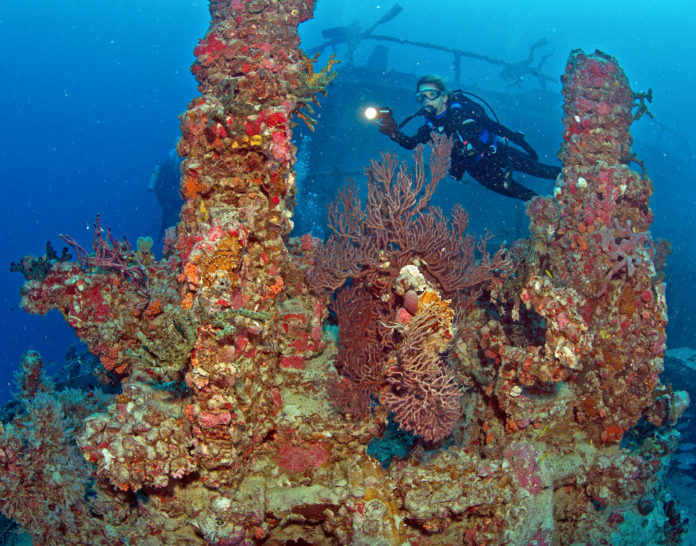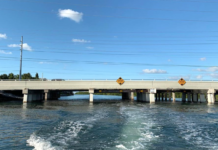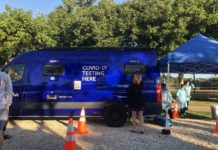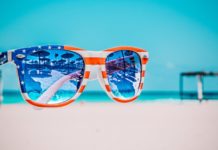
Fodor’s says “No” to the Florida Keys.
I read this headline a while ago, as we all did. I was more than a little concerned by its bluntness and its potential impacts, but not entirely surprised.
Everyone who lives here loves our environment, our fish, coral and clean water. And our visitors come for the same things.
While I’m not a scientist, I do have eyes and can see for myself that our reef is struggling. It’s heartbreaking for those of us who had the good fortune to have experienced the underwater world 30, 20 or even just 10 years ago.
Fodor’s is one of the top two travel guide companies in the world, by most accounts. Each year the company publishes its highly anticipated “Go” and “No” lists about high-end destinations.
Travelers worldwide rely on such information when planning vacations, but this year, for the first time ever, the Florida Keys made the “No” list.
The reason? The declining state of our coral reef. Happy vacations — fishing, diving and snorkeling — are the major products we produce here in the Florida Keys, where tourism is our lifeblood. It’s a lesson we’re painfully re-learning during this pandemic.
This Fodor’s critique is the canary in our coal mine. The message is both powerful and clear, so clear, in fact, that it won’t take many similar messages to damage our economy permanently.
The Florida Keys National Marine Sanctuary’s draft environmental impact statement, known as the Restoration Blueprint, is currently being debated in our community and eventually will become the sanctuary’s management plan.
I have served on the Sanctuary Advisory Council for the past nine years, representing Lower Keys tourism and diving interests in the development of this draft document. I also worked for several years to sink the former military ship Gen. Hoyt S. Vandenberg as an artificial reef off Key West. This week marks the 11th anniversary of that ship’s last mission as an artificial reef.
I can assure everyone, balancing the need to sustain both our environment and our economy is at the center of every conversation at every sanctuary meeting.
The proposed Restoration Blueprint puts forth a series of recommendations. I support some, but not all.
All recommendations are experimental in nature, which is not necessarily a bad thing, as our efforts in the last 30 years to sustain and protect our marine environment have not worked. For a number of reasons, the health of the coral reef continues to decline rapidly.
It is now stated openly in publications and uttered aloud in meetings that 96% of hard coral cover is gone and will not recover in our lifetime. Some experts, like those at the University of Hawaii, predict that hard coral will be mostly gone from the entire planet within 20 years.
The question no longer is whether we need more artificial reefs, but when.
As many in the Keys know, world-class artificial reefs take time to create and are expensive. There are many new regulations and management activities currently proposed for our marine sanctuary. I see two challenges baked into some of the proposed new activities: 1.) We have not yet identified the cause of the rapid environmental decline, and 2.) If everything that’s proposed works perfectly, it will take several years to see the results.
Our economy and reputation could be gone by then.
We know artificial reefs work in the Keys. We’ve seen it happen.
Currently there are several artificial reef projects on the drawing board or getting underway in the Florida Keys, along with a big project in Miami. The Islamorada Artificial Reef Project has been proposed and its feasibility is being determined. The same is true of the Marathon Artificial Reef Project. If successful, both efforts will result in a large ship being deployed offshore from their namesake communities.
Additional artificial reefs are being planned by a new group called the Recreation Action Committee. I created the RAC with pro-fishing activist Capt. Will Bensen and we’ve invited local community leaders to join our efforts. The RAC intends to explore many techniques, including small, experimental artificial reefs, to ensure that fishing — commercial and otherwise — is an occupation that endures in the FKNMS.
I applaud and call your attention to the recently published position taken by the board of the Florida Fish and Wildlife Conservation Commission (FWC), and its chairman Robert Spottswood, who authored a comprehensive series of comments in response to the sanctuary’s proposed plan.
In my ever-optimistic perspective, I read the FWC’s comments as being very pro-artificial reef.
I encourage everyone to support the upcoming artificial reef projects. They will benefit us all, and quickly.
Respectfully,
Capt. Joe Weatherby
30+ years Key West charter boat captain
International artificial reefing consultant

























